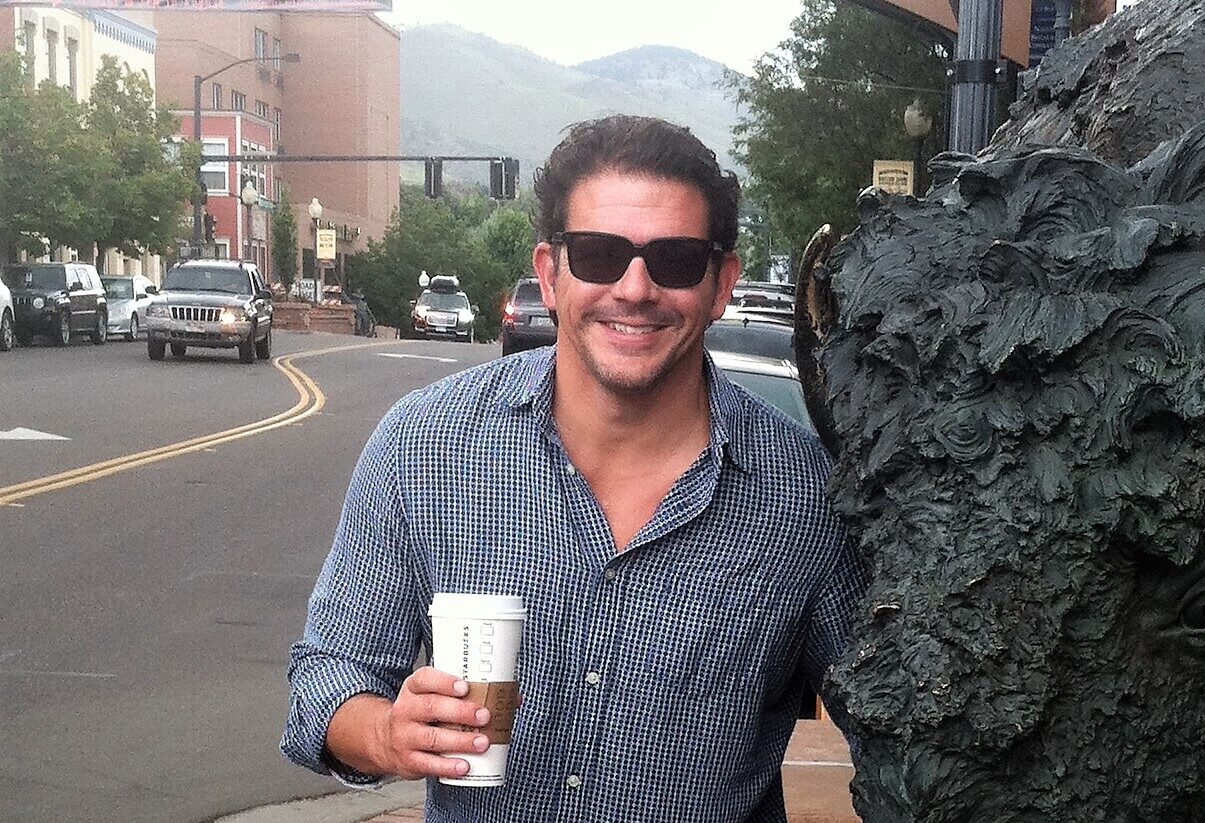Zach Hoffpauir was a multi-sport athlete at Centennial High School in Peoria, Arizona, before becoming an all-conference defensive back and outfielder for Stanford University. Hoffpauir was known as a hard hitter and suffered at least five documented concussions before medically retiring from football in 2016. After graduating from Stanford, Hoffpauir’s physical and mental health declined. He survived a suicide attempt in 2019. After the attempt, he began finding healing through a combination of medication, therapy, and self-reflection. But on May 15, 2020, Hoffpauir died of an accidental overdose at age 26. His brain was later studied at the UNITE Brain Bank, where researchers diagnosed him with Stage 2 (of 4) CTE. Doug Hoffpauir is sharing his son’s story to shine a light on the effects of CTE and to encourage those struggling to seek help.
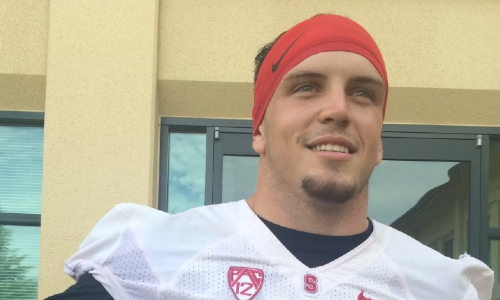
On Saturday, May 30, 2020, hundreds gathered at Christ’s Church of the Valley in Peoria, Arizona, to celebrate the life of Zach Hoffpauir. Two weeks earlier, Hoffpauir passed away from an accidental overdose at age 26.
The speakers who eulogized Zach had all coached him, played football or baseball with him, or grown up with him. Several themes emerged from their tearful tributes.
One – Zach Hoffpauir was unwaveringly committed to his faith and to his family.
Two – Zach Hoffpauir danced well and danced often.
Three – Zach Hoffpauir accomplished a great deal, but what he did was not who he was.
He was the uniter in his family and in his locker rooms. He was the friend who picked up the phone. He was the player who both took coaching and pushed his coaches to get better. He was everything to everybody.
But as much of a light as he was for others, Zach Hoffpauir struggled to find his way out of his own darkness.
“Sometimes he had so much love for other people,” said Christian McCaffery, Zach’s Stanford football teammate at the celebration of life. “That he didn’t have enough love for himself.”
THE NATURAL
Whatever Zach Hoffpauir touched, he excelled in. His father remembers him first catching a ball when he was nine months old, dribbling a basketball by two, and catching his first fish on a fly rod when he was four.
“At his first soccer game, Zach played like a man among kids,” said Doug Hoffpauir. “He was a natural at just about any sport he played.”
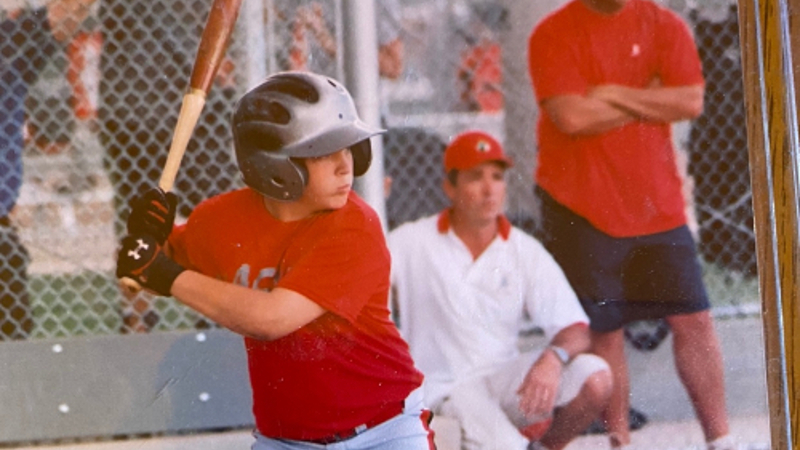
Zach grew up in Peoria, Arizona, receiving a private, Christian education. After eighth grade, he decided he wanted to attend public school and went to Peoria’s Centennial High School.
Prior to high school, Zach played one year of eight-on-eight tackle football. He quickly made a name for himself on the Centennial freshman football team. As the calendar turned his freshman year, Hoffpauir went on to start at point guard on the school’s basketball team and nearly hit .400 on the baseball team.
Despite being an athletic supernova, Zach remained remarkably humble. At Zach’s celebration of life, Stanford administrator Ron Lynn described Zach as “a young man with an old soul.” Centennial High’s football coach Richard Taylor added a similar sentiment.
“I had a teacher come up and tell me once,” said Taylor. “That speaking to Zach was like speaking to an adult.”
In a practice his sophomore year, Taylor saw Zach take a hit so big his helmet rotated 90 degrees across his face. Football was still relatively new to Zach, so Taylor worried the hit would scare Zach away from the sport. Instead, Zach found his favorite part of football.
“This is fun,” Zach told Taylor once his helmet was on straight.
Zach gave up basketball to focus on football and baseball. He excelled in both and became one of the best athletes in Centennial history. Zach decided to attend Stanford University, where he would continue football and baseball.
CARDINAL
Athletically, Zach’s freshman year in Palo Alto was not as prolific as his freshman year at Centennial. He played primarily on special teams in football and struggled mightily in baseball. The statistical production wasn’t there yet, but Zach Hoffpauir didn’t need to produce on the field to make an impact on his teams.
“He was just a light,” said Tyler Thorne, Zach’s Stanford baseball teammate, at his memorial service. “He had a unique ability to understand people from all walks of life.”
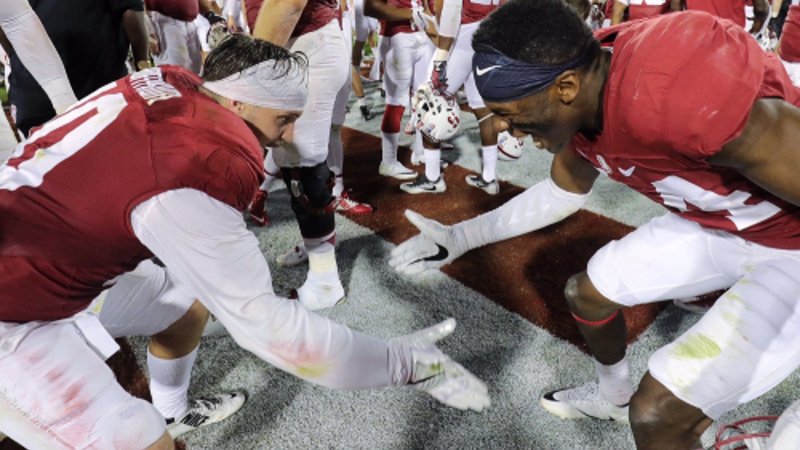
Hoffpauir’s freshman slump was a blip in an otherwise decorated career in Palo Alto. His junior year, Hoffpauir earned All-Pac-12 honorable mention as a safety in football and as a right fielder in baseball.
His athletic talent and intense loyalty were both on display in a chippy series against rival Cal in April 2015. Zach went 6-12 with three home runs in the series, including an infamous post-homer stare down with a Cal pitcher who had been taunting Stanford.
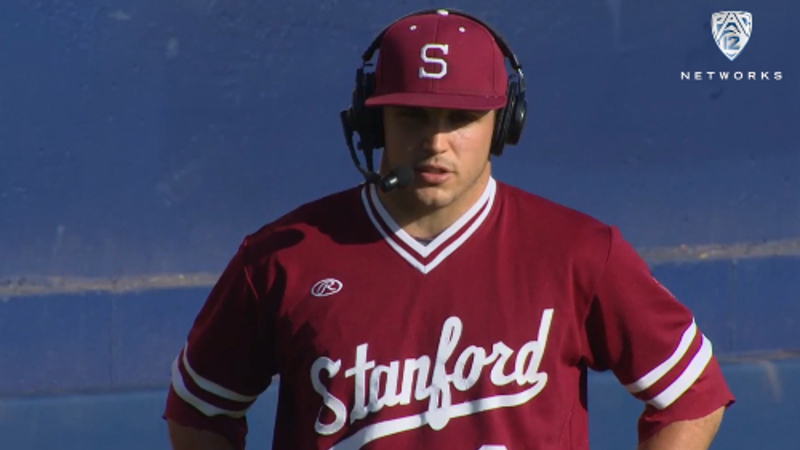
“Don’t mess with his friends, don’t mess with his family,” said Lynn. “Because if he had to, he would challenge you and he would step up and say, ‘This is not right.’”
At Zach’s memorial service, Stanford football coach David Shaw reflected on Zach’s willingness to speak up to the Stanford coaching staff when he thought change was necessary.
“He challenged me,” said Shaw. “He made me better.”
After the Arizona Diamondbacks selected him in the 22nd round of the 2015 MLB Draft, Hoffpauir took a year off from football to spend a season playing minor league baseball. He then returned to Palo Alto for a fifth-year senior season in 2016.
“LOUD AND PASSIONATE”
At his memorial, Zach’s pastor said, “Everything Zach did was loud and it was passionate.”
His playing style for Stanford football was no exception.
In a September 2019 interview on “Untold,” a podcast hosted by fellow former Pac-12 safety Jordan Simone, Zach estimated he had five or six “on the record” concussions, and that at least two of them came in the 2016 season.
In four seasons at Stanford, Zach amassed 102 total tackles. He made 137 more in high school and was in on hundreds of others playing running back and wide receiver. As he did with all things, Zach put his all into every hit.
“Zach was the hardest hitter, most aggressive player I ever played against,” said McCaffery at the memorial.
The totality of the damage brought Zach’s football career to an end. He had to medically retire due to concussions prior to Stanford’s bowl game in 2016.
“It was a stripping of identity for me,” said Zach about the retirement on the 2019 podcast.
“THERE IS SOMETHING WRONG WITH MY HEAD”
For most his life, Zach Hoffpauir was guided forward by sports. The next play, the next at-bat, the next game, the next sport, the next season. Once college was over, Zach struggled with the lack of a “next.”
“After Stanford and the finality of not being able to play beyond college, he struggled with what to do in life,” said Doug Hoffpauir.
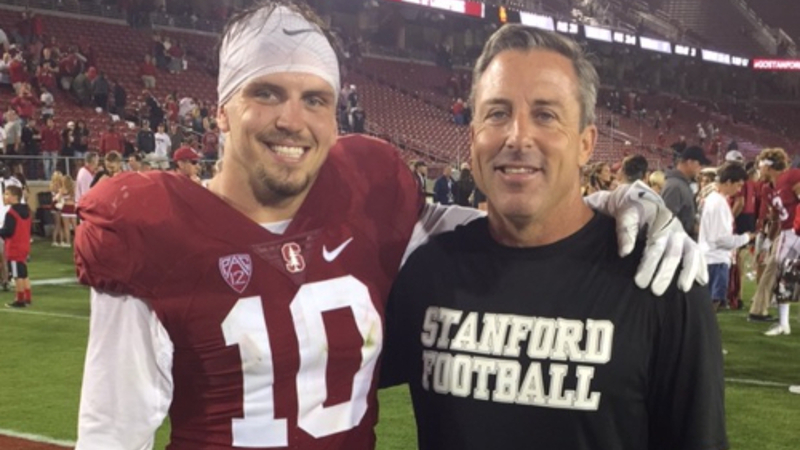
The loss of identity was hard enough, but Zach also endured his parents’ divorce, his grandmother’s lung cancer diagnosis, and a breakup in short succession after he left Stanford.
Zach moved in with Doug during this time. Normally, Doug says Zach would be able to rebound quickly from things. But this time, Zach entered a deep funk.
He had trouble sleeping as his mind raced at night. His mood changed. He had a shorter fuse and he snapped at friends and family more quickly. The mini explosions were always followed by apologies. Doug could tell he was cognizant of and upset by his mood changes.
Doug remembers his son saying to him that, “there is something wrong with my head. I don’t want to act and feel this way. I just want to feel normal.”
“I walked through his darkest days right by his side,” said Doug. “I felt helpless because I wanted to fix things for Zach, but I did not know what was really wrong.”
Zach’s physical and mental health were failing him. On top of the depression and anxiety, he was diagnosed with Lyme Disease in 2019, which weakened his immune system. He also contracted Valley Fever and meningitis.
On “Untold,” Zach shared how deep his emotional pain went. He detailed how in spring 2019 he attempted to take his life by overdosing on Xanax and Benadryl.
Surviving the attempt led Zach to realize he needed help. He couldn’t fight this alone.
HEALING
After the attempt on his life, Zach slowly found his footing with a combination of medication, therapy, and self-reflection.
The neurologist who diagnosed Zach with Lyme Disease prescribed him medication to help him stay balanced.
Zach also began seeing mental health professionals. On “Untold”, Zach shared how a psychologist helped him learn how his sense of self-worth had plummeted after Stanford because he felt he was no longer living up to external expectations.
“We, as his family, believed that he could do whatever he wanted in life,” said Doug. “We were celebrating his accomplishments not knowing that it caused a lot of pressure for him to perform.”
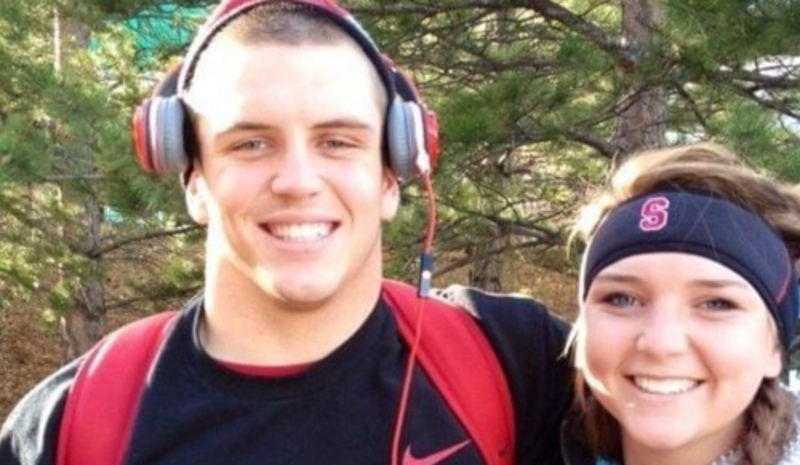
He also shared how he increased his emotional literacy and was able to name the emotions he was feeling rather than bury them.
“People always thought I was the happiest guy,” Hoffpauir said on “Untold”. “Inside I was so miserable. But I would fake it.”
Gratitude became an important part of Zach’s healing process. He began writing whenever he felt anxious, listing whatever he felt grateful for in that moment to ground him.
Zach also started coaching back at Centennial High. His same ability to connect with people that made him such an outstanding teammate made him an instant fit in coaching. So, when Ed McCaffery, the former NFL player and Christian’s father, took the head coaching position for the University of Northern Colorado in February 2020, Christian recommended his father add Zach to the coaching staff. Zach took the job as a defensive backs coach at NCU.
“He was a young, intelligent coach with limitless potential,” wrote Ed McCaffery in a Facebook post after Zach’s death.
MAY 15, 2020
The night of May 14, 2020, Zach Hoffpauir and Shaw spoke on the phone for several hours. With Zach preparing for his first season at NCU, he spoke with Shaw about the craft. He told Shaw how he had identified the most important quality in any great coach was not discipline, communication, or any tactical trait. It was compassion, Zach said.
Zach Hoffpauir did not wake up the next morning. He died of fentanyl toxicity. According to his mother, he took a Percocet to help him fall asleep and did not know the pill was laced with fentanyl.
His death sent shockwaves into the Peoria, Stanford, and broader football community. Following Zach’s death, Doug was contacted about donating Zach’s brain to the UNITE Brain Bank for CTE research.
“My family wanted answers to help us process the loss of Zach,” said Doug. “We also knew that this research could help others, and that is exactly what Zach would want.”
Months later, Brain Bank researchers informed the Hoffpauirs that Zach had Stage 2 (of 4) CTE. He had multiple lesions on the frontal and temporal lobes of his brain.
“Just imagine what Zach’s parents are going through,” said Dr. Ann McKee, Director of the UNITE Brain Bank, in a 2021 documentary from Sports360AZ about Zach’s life. “This beautiful, talented, incredibly intelligent young man dying at 26 with the ravages of this disease in his brain.”
The diagnosis helps explain why Zach’s mood and behavior changed so much once he left college.
“The results provided closure,” said Doug. “Now we better understand why Zach struggled so much during the last few years of his life.”
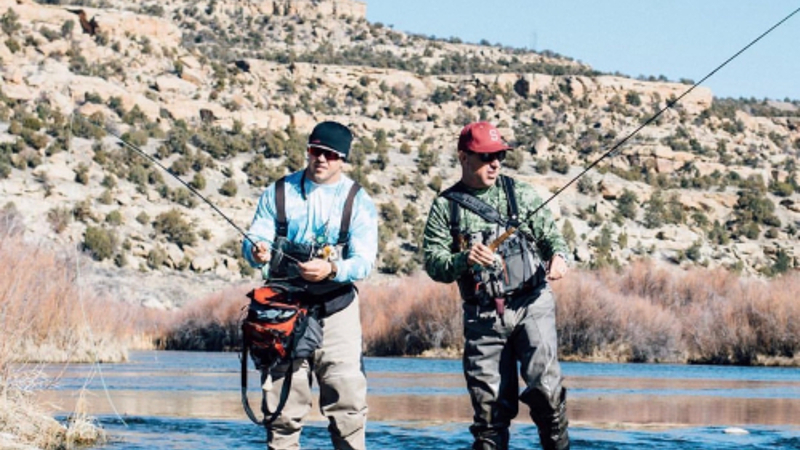
“HE’D BE IN YOUR HEART”
On stage at Christ’s Church of the Valley after Zach’s death, Tyler Thorne urged those in attendance to live as Zach did – to be completely present for the needs of others.
“It’s hard to find people who when you’re around them and they’re truly present,” said Thorne. “He’d be in your heart.”
Zach’s cousin, J.D. Cavness, expressed the same feeling in his eulogy.
“He stood for caring for others,” said Cavness. “No matter where they came from, no matter their circumstances.”
Zach Hoffpauir’s legacy undoubtedly lives on in the example he set for how to treat others.
Zach also set an important precedent by talking about his own struggles with mental health and encouraging others to seek help in their darkest hours. In the closing moments of his “Untold” interview, Zach spoke about the power of vulnerability and opening up to others about what you’re going through.
“We are more similar than we are different,” said Zach. “And we connect in weaknesses.”
Are you or someone you know struggling with lingering concussion symptoms or possible CTE? We support patients and families through the CLF HelpLine, providing personalized help to those struggling with the outcomes of brain injury. Submit your request today and a dedicated member of the Concussion Legacy Foundation team will be happy to assist you.
